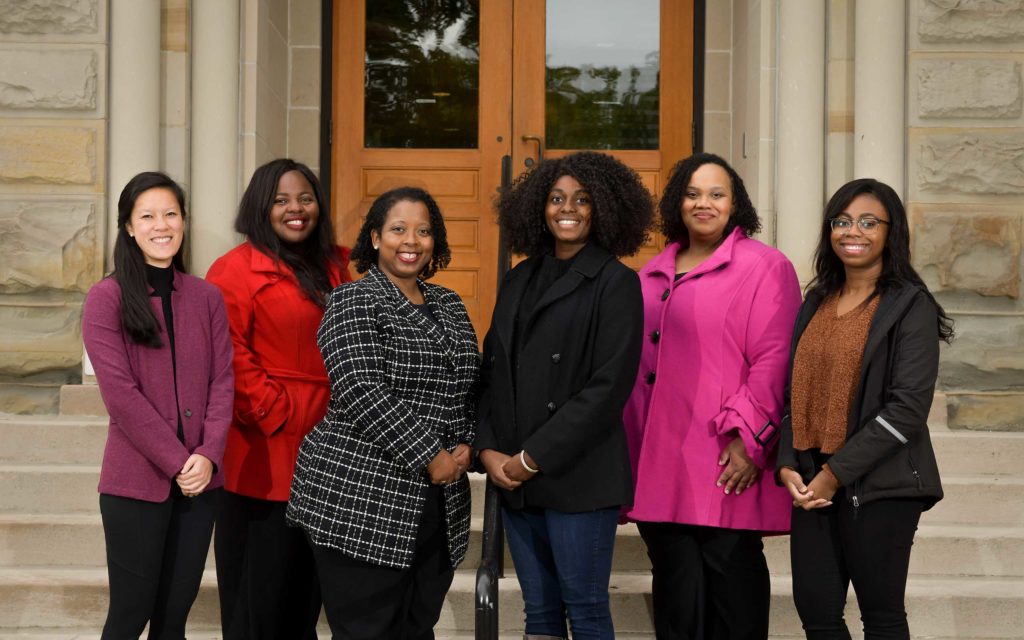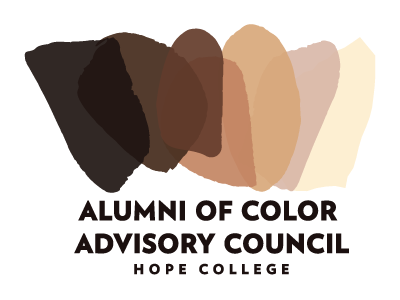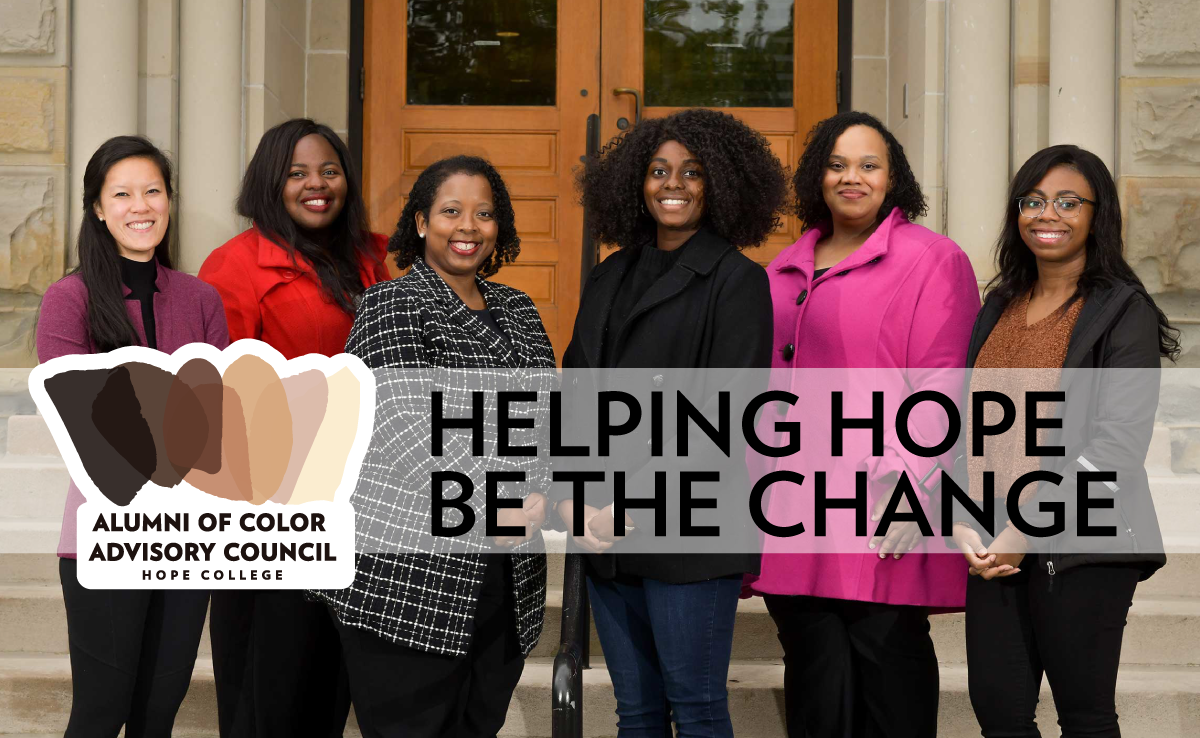Helping Hope Be the Change

If the fractious, en-factioned world is the pond, then Hope seeks to be the pebble dropped in the middle to send out waves of change.
If the college is to play that role, it must first be the change.

The Alumni of Color Advisory Council wants to help Hope make the journey. Consisting of 15 members spanning the classes of 2004 through 2019, the council formed after an online town hall meeting in June of 2020 during which alumni of color spoke about their experiences as students. The group is a resource and voice for current and previous generations of students, and provides counsel to enable the college to know better and do better in providing an environment in which all members of the Hope family can flourish.
“Though that was a very intense meeting, we were able to bring the Alumni of Color Advisory Council from that meeting as a way to enhance the experiences of our BIPOC [Black, Indigenous, People of Color] students, as well as start a network of our BIPOC alumni, along with allies who support the work that we’re doing here at Hope College,” said Courtney E. Brewster ’04, who with Tiffany Labon ’05 co-chairs the council’s leadership team.
Their active engagement is a crucial part of the college’s institution-wide “Inclusive Excellence” initiative based on a framework developed by the Association of American Colleges & Universities. The framework’s components include focusing on students’ social as well as intellectual development, attending to the cultural differences that learners bring that enhance the educational experience, and providing a welcoming community that engages all of its diversity in enriching learning.
“You can’t heal what you’re not willing to reveal. One of the opportunities that I think our alumni in this council are able to offer are experiences that are important to recognize,” said Jevon Willis, director of the Center for Diversity and Inclusion (CDI), which along with the Office of Alumni and Family Engagement works in collaboration with the council. “And so I think the kinds of things that we can learn from their experiences, the history that’s connected to trauma, the history that’s connected to some kinds of experiences that don’t always make Hope as favorable as it can be, are important to acknowledge in ways that inform future strategies for greater inclusion efforts and opportunities.”
After meeting online since last year because of the pandemic, the group held its first-ever in-person gathering during the college’s One Big Weekend: Homecoming and Family Weekend celebration in October. Their time together at the college included meeting with students and members of the administration both to learn and share. Several of the members also participated in filming a video that will be posted online to help inform the Hope family about the council, its goals and how others can help.
“We have been able to meet with President Scogin as well as a number of campus stakeholders,” Labon said. “To basically say, ‘Hey, this is what’s going on at Hope. This was my experience. This is what the current students are experiencing and this is how we can come together in order to impact the changes that need to be had.’ AC Squared, as we are affectionately called, we definitely believe that Hope can be and will be a better place by implementing the changes that we are coming forth with in terms of programming and mentorship to essentially effect institutional change.”
The council is especially hoping to encourage alumni of color to serve as mentors for students. As visiting speakers, through lunch-and-learns or through the Boerigter Center for Calling and Career, they can change lives as advisers and inspirations who can trace the through-line from the students’ current experiences to the lives that they will lead after graduation.
“I think that’s huge just for students to have older people to look up to. And just to know that, ‘Hey, there is somebody out there in the world who looks like me that’s doing x, y, z,’” said Rachael Kabagabu ’15. “Just thinking back to my experiences as a student, I really liked hearing from alumni, hearing the different pathways that they took and the ways that their life turned out. And just thinking, ‘OK. This is one way that my life might look or this is something I might be able to do.’”
The students, noted council member Samantha Poon ’14, make it easy to care and be involved.
“It’s inspiring to see the students, and especially the seniors who are about to graduate and maybe join our council or maybe go on to do really, really awesome things,” she said. “And that’s so worth all of the pushing for change, advocating for change, working with campus partners like the president or CDI or the Racial Equity Steering Committee, CAPS [Counseling and Psychological Services], and continuing to work alongside our campus partners in order to make Hope a better place for students of color and ultimately a better place for everyone.”
Please visit Hope online for more about the Alumni of Color Advisory Council, including the video discussed in the story. The address below also has links to other resources and sites that support and outline the college’s ongoing commitment to enhancing diversity, equity and inclusion, along with opportunities to provide input and get involved.

